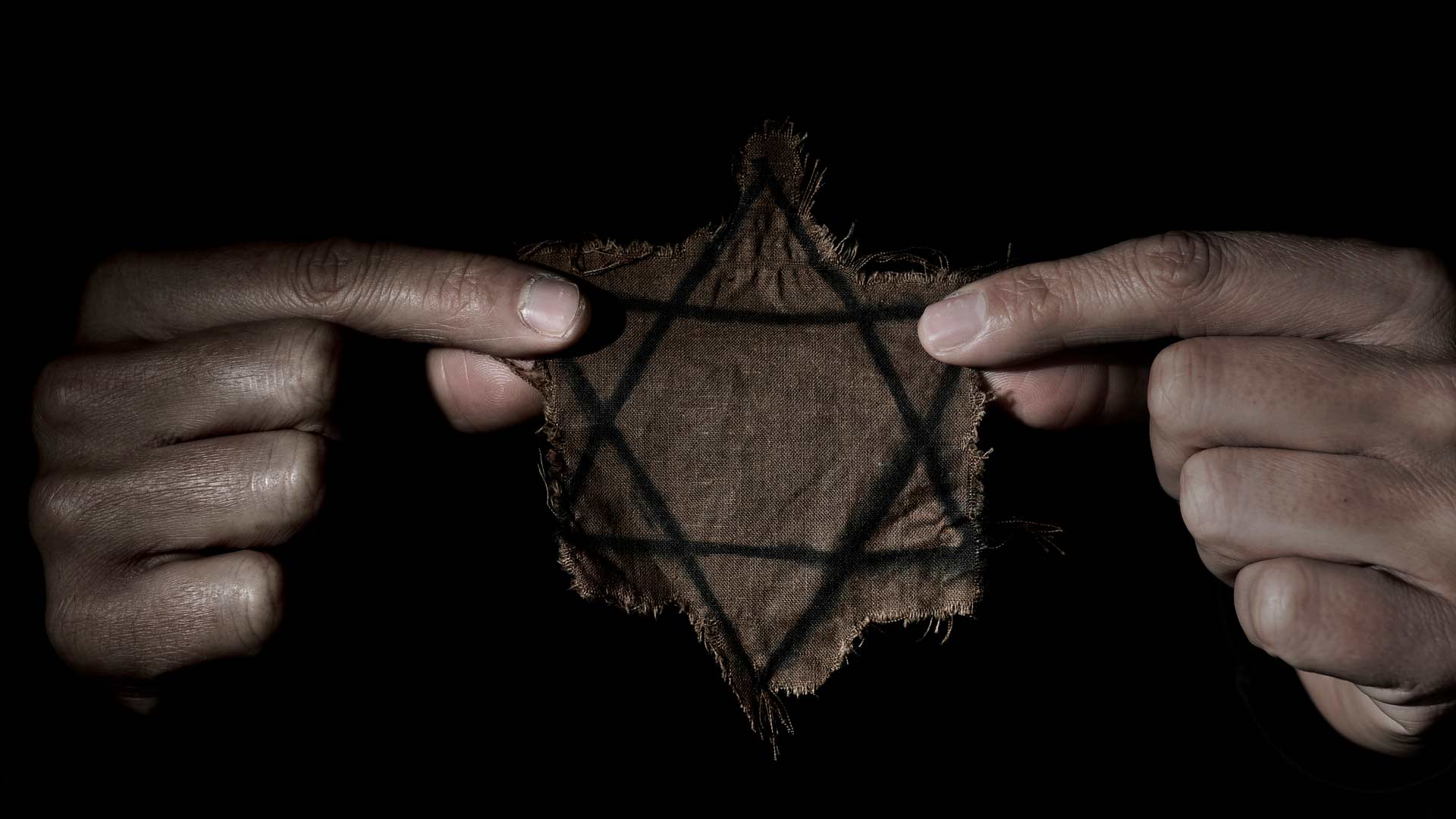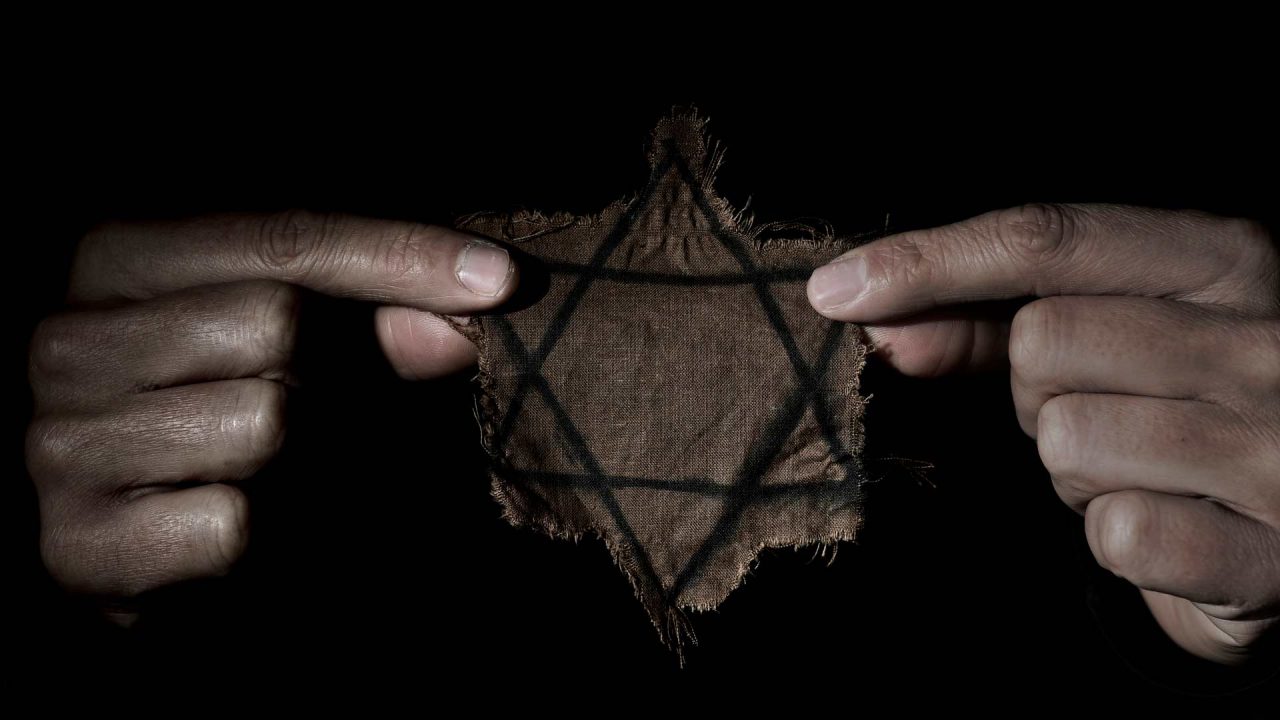
Anti-Semitism is a hostility toward or discrimination against Jews as a religious or racial group. The term anti-Semitism was coined in 1879 by the German agitator Wilhelm Marr to designate the anti-Jewish campaigns under way in central Europe during the unification of Germany at that time.
On May 26, 2016, the 31-member countries of the International Holocaust Remembrance Alliance adopted the practical, legally non-binding definition of anti-Semitism: “Anti-Semitism is a certain perception of Jews that can be expressed as hatred of Jews. The physical and rhetorical manifestations of anti-Semitism are directed at Jewish or non-Jewish persons and/or their property, the institutions of the Jewish communities and their places of worship.”
As a little Jewish boy in Kiev, Ukraine in the 1950s and 1960s, I often wondered why many of my countrymen held anti-Jewish attitudes.
In short, anti-Semitism is the belief or behavior hostile toward Jews just because they are Jewish. For instance, it may take the form of religious teachings that proclaim the inferiority of Jews or political efforts to isolate, oppress, or otherwise injure them physically or psychologically. It may also include prejudiced or stereotyped views about Jews — their cultural traditions, appearance, language, physical characteristics, etc.
Nevertheless, an institutional or dictionary definition of anti-Semitism does not adequately reflect or explain the feelings of those Jews who have experienced and been subjected to daily anti-Semitic mistreatment, discrimination and prejudice by society at large and radical groups of people with whom they have been coexisting. Certainly, I can conceptualize what ethnic minorities, including Black Americans, experience by socio-economic pressure of the dominant culture, but I will never know for certain how Black Americans feel when they are stopped by law enforcement authorities; as non-Jews, most likely, will never know how Jews feel in the anti-Semitic social environment or being subjected to anti-Semitic attacks and mistreatment.
Historically, anti-Semitism in Russia has been manifested in numerous ways: direct attacks at Jewish settlements, denial of employment and admission to schools of higher education, denial of residency in large cities before 1917 pre-revolutionary Russia, hatred by certain radical groups or ignorant individuals, fear for Jewish identity, and the list goes on.
My mother’s fear for the safety of her children … in the post-WWII Ukraine, was perfectly justified.
As a little Jewish boy in Kiev, Ukraine in the 1950s and 1960s, I often wondered why many of my countrymen held anti-Jewish attitudes. My parents could not give me an adequate answer: “It is what it is,” my mother kept repeating to me. “Stay in your circle, because sooner or later ‘they’[outsiders] will betray you and call you ‘zhid’— a ‘dirty Jew.’”
My mother’s fear for the safety of her children, as well as many other Jewish mothers in the post-WWII Ukraine, was perfectly justified. Her father (my grandfather), Roman Umansky, was captured by German Nazis and brutally killed in Nazi-occupied Kiev in 1941. He was betrayed by the Ukrainian woman who worked for him in his barber shop before the war erupted; she called the German SS on him for the reward of a small ration of food.
Residents of Kiev also were well aware that nearly 34,000 Jews were massacred on 29–30 September of 1941 by the German SS in Babiy Yar — a ravine in Kiev, about a five-minute walk from the school where my mother taught K–4 students. This was also a school that I attended for 4 years in the early 1960s. It is estimated that between 100,000 and 150,000 people, mostly Jews, were killed at Babi Yar during the German occupation of Kiev from September 1941 until its liberation in November 1943.
Indeed, Jewish mothers in the post-WWII period in the former Soviet Union, witnessing a Holocaust and extermination of Jews during the war, were especially protective of their sons; often deciding against circumcising them (religious Jewish practice/ritual for newborn boys) in order to hide their Jewish identity—just in case the tragic history of Holocaust may repeat itself.
Many Jewish immigrants from the former Soviet Union, are subjected to charges of “white privilege” from leftist social activists.
After the eruption of the October Socialist Revolution of 1917 in Russia, religion of all denominations was proclaimed an “enemy of the people and opium of the masses.” Most churches and religious institutions were abolished and theological teaching in schools was banned through the entire country.
Instead, Marxist-Leninist teaching/propaganda became an ideological foundation of the country with “Scientific Atheism” and “Scientific Communism” as required disciplines to be instructed in all educational institutions of the former Soviet Union. Practicing Judaism, religion of Jewish people, was subjected to harsh punishment by the Soviet government and the word God should not be mentioned at all or only with a great caution in private.
Occasionally, for the High Jewish Holidays, my nuclear family would gather in my Grandfather Aron Dolitsky’s (my father’s father) house for a traditional celebration. He lived in the rusty communal house on Vorovskiy Street in a small two-room apartment, together with five other members of his immediate family, sharing a kitchen and bathroom on the same floor with other non-Jewish family. When his voice would rise a little high during his prayer, my grandma Pulya would gently touch his arm and caution him, “Aron, not so loud, our neighbors can hear you.”
ALASKA WATCHMAN DIRECT TO YOUR INBOX
One time, after the prayer, I approached my grandpa and asked him sheepishly, “Grandpa, tell me, is He there?” Grandpa nodded sympathetically then hesitated a moment, “For those who believe in Him, He is; and for those who do not, He is not,” he answered with a slightly put-upon sigh.
The main reason that so many Soviet Jews immigrated to the United States from the 1970s through 1980s was to escape anti-Semitism in the former Soviet Union and have an ability to exercise their religious freedom and practice their cultural traditions in America. Unfortunately, there are anti-Semites in America, too — they are ignorant and narrow-minded people. But today America is not an anti-Semitic or racist country. Period!
Nevertheless, today in our country, after all the historic struggles of the Jewish people, I, and many other Jewish immigrants from the former Soviet Union, are subjected to charges of “white privilege” from leftist social activists.
Given my ancestries past experiences and struggles, try to put yourself in my shoes! Will you?
The view expressed here are those of the author.








11 Comments
While not a a Jew myself, back in2014 I wrote a rather long story of my personal experience with Anti-Semitism growing up with Jewish friends and recently as an adult in Christian Churches. It’s titled, “Anti-Semitism, Then and Now”. If you send me a link or tell me how, I can send it to you.
Doug Ferguson
Palmer, AK
Thank you, Doug. Please ask Joel Davidson for my email or contact me via Facebook. I am reluctant to reveal my contacts on public. This morning, I received an offensive comment related to my article from one anthropologist: “Michelle De La Cruz:
This is what you get when you have an extremist write a piece. Went off the rails for me towards the second half. “This country is not anti-Semitic or racist PERIOD”? When will thinking people write these articles and get published as easily as these people can? I wish I never read it.” I responded to this person: “Good for you. You read it and perhaps learned something factual.” God, please save us from these ignorant people.
MYOCARDITIS…. KILLING OUR YOUNG MEN THROUGH. INJECTION….. PIECE THE PUZZLE. YOUNG MEN. ARE OUR DEFENSE. CHINA IS OUR ADVERSARY . THIS IS NO VACCINE.
DOMIINION,,,,,, CONGRESS AND STATE LEGISLATURES THAT DELIBERATELY IGNORE THIS STOLEN ELECTION BY FOREIGN INTERFERENCE AND HID FROM IT ARE ELIGIBLE FOR EXECUTION AS COMPLICITS….. YOU WERE ALL WARNED!!!!!,,,, SHITS DONE GOT SERIOUS…
https://www.facebook.com/photo?fbid=10158598504407756&set=a.10152960751952756
A person only preaches and forms opinions of what they know and understand. It wouldn’t be right for us to steer ourselves and children away from a particular person or group because of a negative experience confronted by a member of that group. In the offenders isolation because of we are protecting ourselves and children from being shamed and slandered by them, we miss the opportunity to re-educate them about who they thought of us from what they grew up around. In a sense we are doing the same thing to them they are doing to us continuing the abusive cycle. You know what is more needed after an offense? More forgiveness and more love.
I don’t know why someone would come up with a term as dirty jew or dirty filipino or dirty white man or dirty samoan. Except thinking by my own past experiences with some other groups who excluded me because of I didn’t look like them or they were aloof toward my present being around them cause I don’t observe their practices which the ignoring hurt me. Perhaps long ago they were offended by a jewish family or families and they turned bitter toward that group. What they need more is: Love, not condemnation. Forgiveness, not bitterness, anger, rage, or continue separation. Grace, not judgement.
Jen, thank you for your comments. Let me ask you a question: Will you forgive or love a criminal who killed your father and raped your daughter? I would not have much love in my heart for this individual. Yes, I can forgive certain things, but I will not forget. I think you missed the main point of my article. And it was not easy for me to write about a tragic past of my people and my family. It is very personal. The main objective of my article is for readers to recognize and understand that the rice of anti-Semitism, race warfare, counsel culture, systemic racism nonsense, and white privilege and critical race theories have resulted and originated from the radical leftism in our country. And it may lead to the Socialism. Believe me, you don’t want to go that route.
Liberal, conservative and any rational individuals in our country should be brave and have a courage to stand against this dysfunctional social diversions from a reality in our country–against LEFTISM. I tend to be indirect in my writing, so the reader should recognize the points of my article between the lines.
What a fascinating article! I was so interested in the personal stories of Alexander’s mother and grandparents and what the world must have been like for them. What a grim time for them to live through, but I understand that Jews in Russia (and probably most of Europe) were historically treated cruelly. Thank you for preserving these important memories. They help put our own troubles in perspective.
Thank you, Mark. There is too much silencing and intimidation going on in our country; honest debate should not be suppressed. But, of course, Left progressive activists do not debate; they just censure and smear their opponents.
We should advocate to LOVE our country, not HATE!
Excellent article! I have friends in Ukraine who are trying to wake up Americans to the horrors of Socialism. Unfortunately, the MSM has a huge megaphone and deep pockets which they use to promote this cultural suicide. Keep speaking the truth and know there are many people listening and we support our Jewish friends. Shalom!
Mark, thank you for kind and reassuring words.